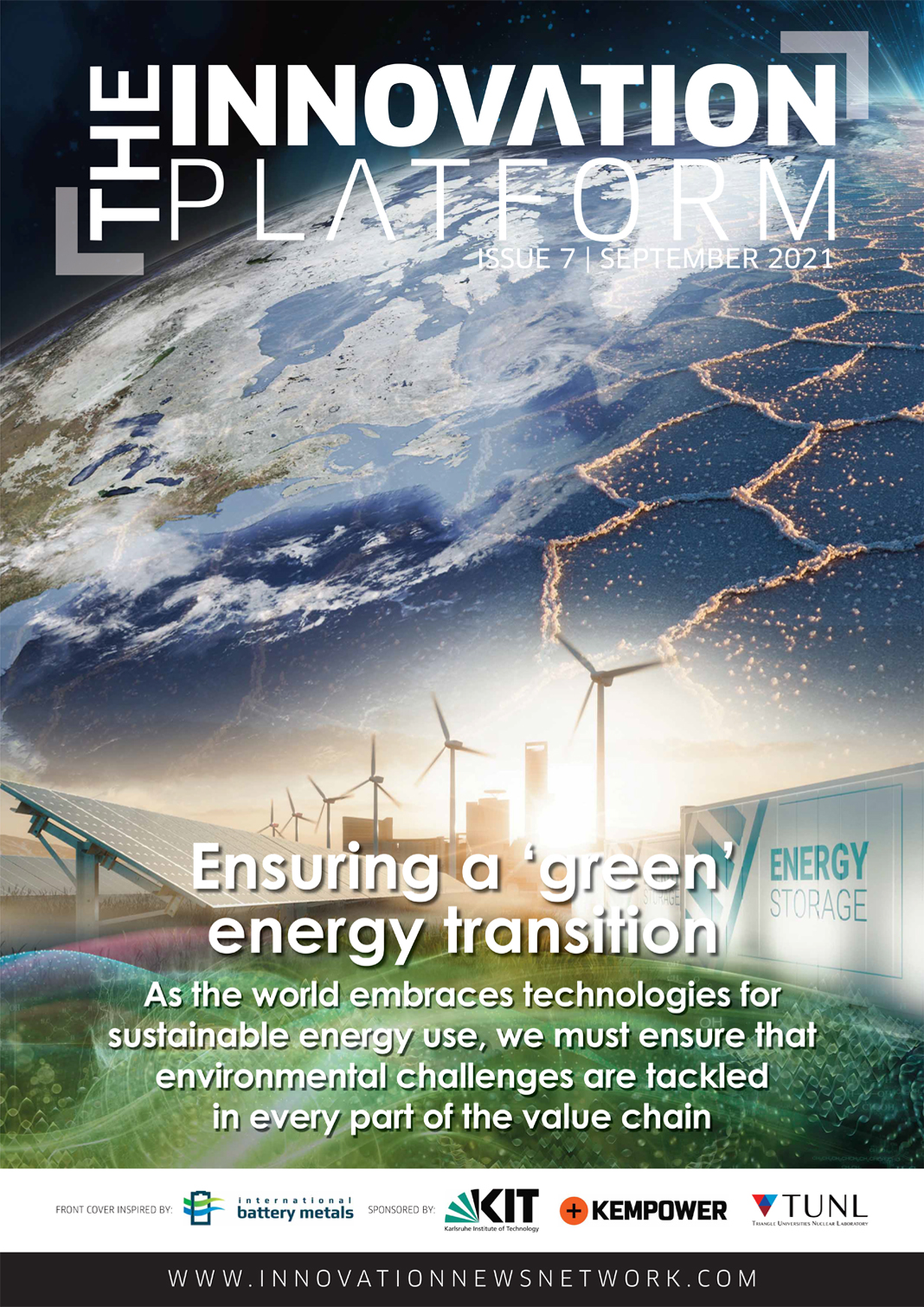The seventh edition of The Innovation Platform discusses research and innovation across the fields of energy and energy storage, electric vehicles, physics, space, the environment and more.
The world is changing. And while in many ways that is a good thing, in others it is not. A recent report by the UN’s Intergovernmental Panel on Climate Change (IPCC) has warned that increasingly extreme heatwaves, droughts, and flooding will result from rising global temperatures and that much more must be done to prevent them. If we don’t change, then the world around us will. Meanwhile, the COVID-19 pandemic has continued to foster change – from the way we perceive our healthcare systems and those professions deemed ‘critical’, to changes in the way we live our lives, both socially and professionally. And from this, a political focus on change is emerging which has the potential to lead to a greener, more sustainable future.
Key to many of these changes is science and innovation. It will take a wealth of research to help humanity escape from the climate disaster that looms before us, just as science and innovation will enable a societal transition from that which existed before the pandemic to one that will prove fairer, more inclusive, and more environmentally friendly.
For R&D&I to move forwards, the supporting structures need to be in place, and it is therefore refreshing to see a clearer focus now being placed on the science that is required in these areas at both the EU and Member State levels – and, indeed, in the wider world. This includes renewed efforts to decarbonise various sectors, not least transport; a push for renewable energy; and a more sustainable system for the production of food and feed, amongst others.
And, of course, those disciplines which may not have a direct bearing on the changing climate or the required future sustainability must also continue to be supported. Whether this involves research into fundamental physics, science that explores the Universe and our place within it, or innovation that will enable numerous sectors to grow – from consumer electronics to disaster response and humanitarian efforts – expanding the knowledge base is a fundamentally human endeavour, and one that should be championed.
This very endeavour is exemplified by the UK’s Science and Technology Facilities Council, the Executive Chair of which, Professor Mark Thomson, has authored the Foreword to this edition of The Innovation Platform. Here, he explains how the Council is supporting the R&D&I landscape, from fundamental research to innovation and invention. And in later pages you will find several interviews with STFC-funded researchers who are utilising their recently-awarded Ernest Rutherford Fellowships to answer some of the most fundamental questions in science.
In addition to sub-sections on Space and Physics under the ‘Research & Development’ header, the Energy & Energy Storage section includes a wealth of content focusing primarily on the battery value chain – from the extraction of raw materials to processing, innovation, and application. Meanwhile, a further section on Renewables explores so-called ‘Alternative Fuels’, including hydrogen and wind and hydro energy generation, in addition to content on the electric vehicles revolution and the role that cities will play moving forwards.
In the Health section, articles can be found to explore the impact of the COVID-19 pandemic – including articles from the European Commission and UNICEF – and subjects such as evolution, cancer, and the Life Sciences.
The final section focuses on Environment & Sustainability and includes articles and interviews on areas such as aquaculture, water, and disaster response.
These are just a few highlights from what can be found in the following pages, and I hope that you find them all as interesting and informative as I have found in their creation. I also welcome any comments you may have.
Clifford Holt
International Editor
The Innovation Platform


